Born in Toronto in 1960, Larry Grafstein studied at Harvard before going to Oxford to take an MPhil in politics. In his final year at Oxford, he was elected president of the Oxford Union. After completing law school in Toronto, Grafstein went into investment banking, specialising in mergers and acquisitions. He is now Deputy Chairman of the Global Investment Bank at RBC Capital Markets. Grafstein is also heavily involved with philanthropic work, including as a generous supporter of the Rhodes Trust. This narrative is excerpted and edited from an interview with the Rhodes Trust on 11 July 2024.
Larry Grafstein
Ontario & Balliol 1982
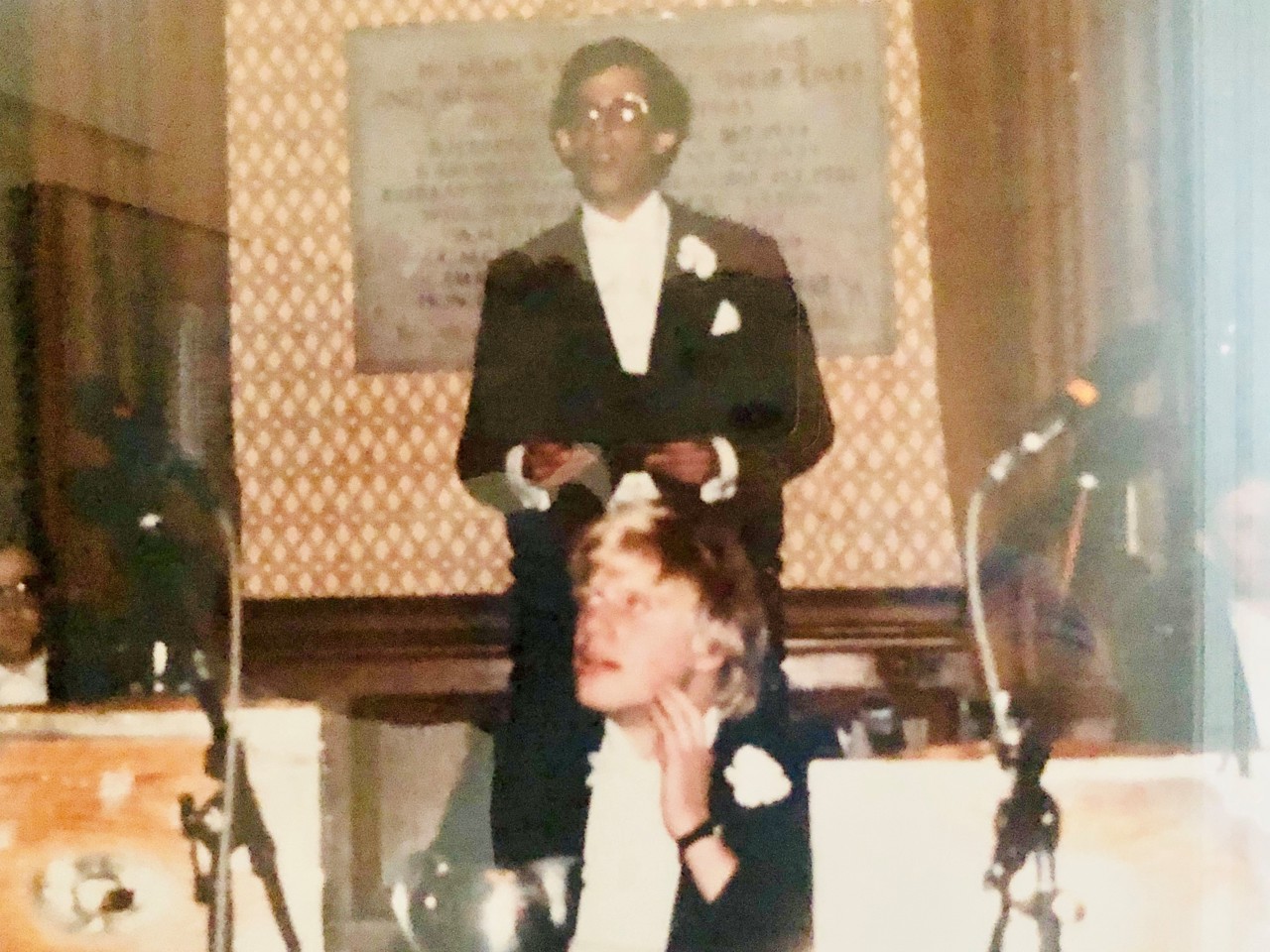
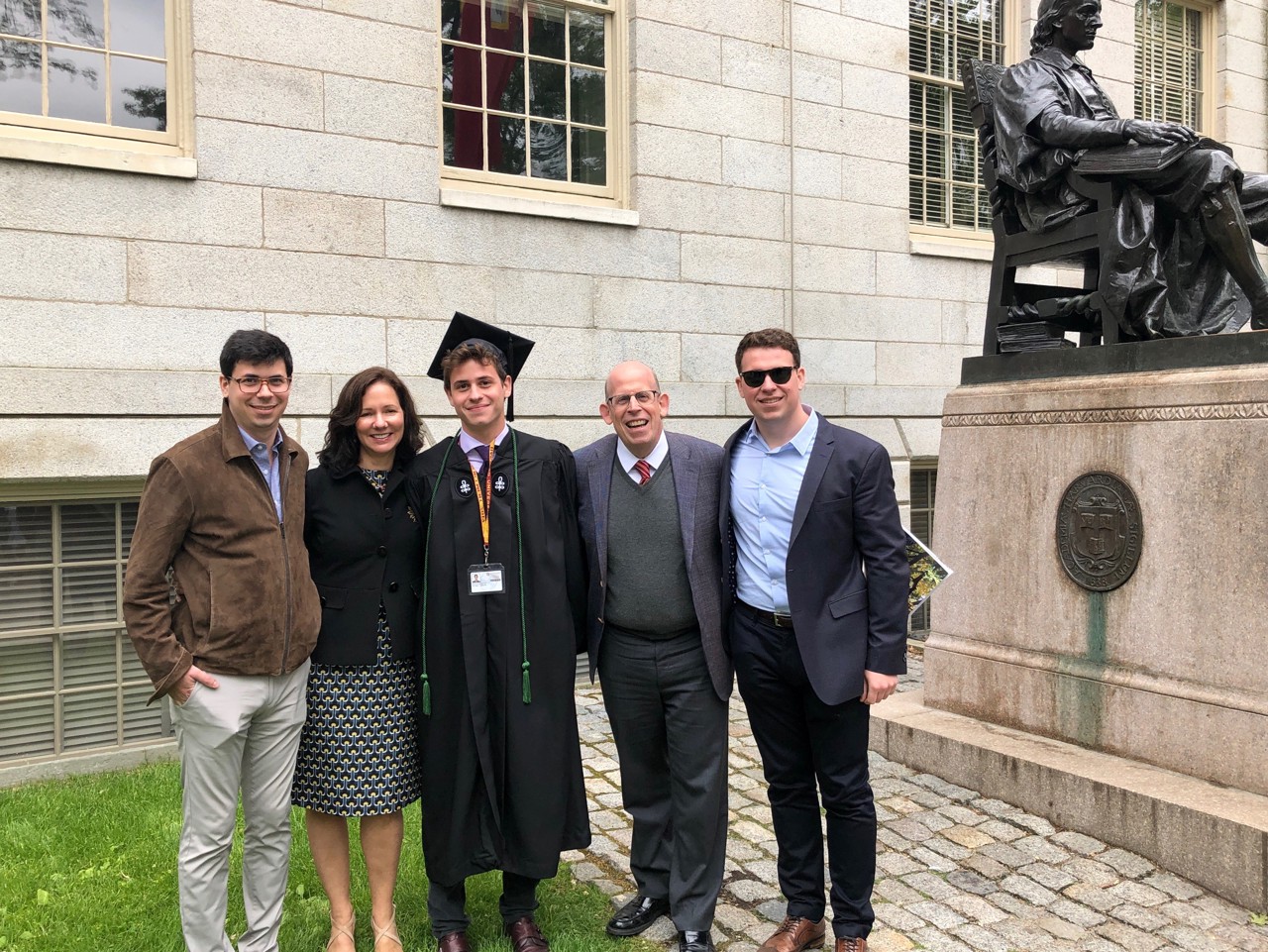
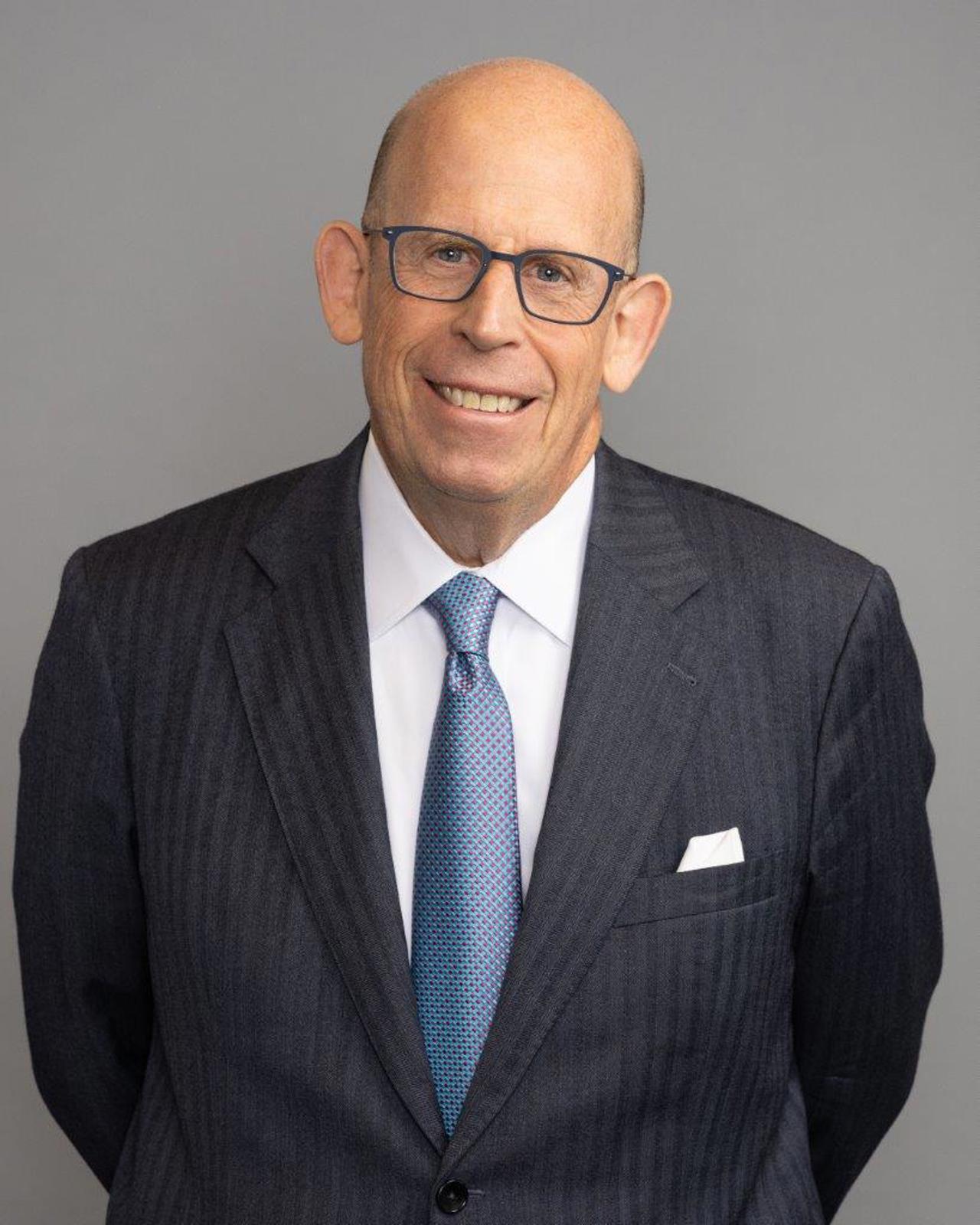
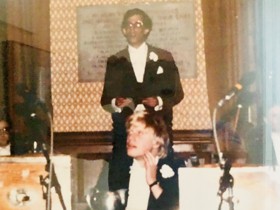
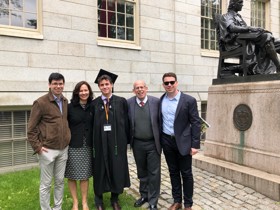
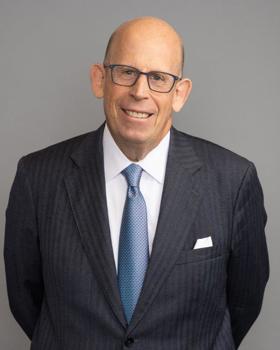
‘An early grounding in issues that have remained important to me throughout my life’
I grew up in Toronto, in a very nice part of the city called Forest Hill. My father was a lawyer who eventually became very involved in politics, serving for 26 years in the appointed office of Senator. My mother was heavily involved in philanthropy and was later given the Order of Canada for all her work. My parents and my younger brother and I lived in a house that was purchased by my mother’s mother, who was a wonderful grandparent and mentor to me.
I went first to a Jewish day school at a large synagogue in Toronto called Beth Tzedec, and I stayed there until sixth grade. It was half a day of Hebrew and half a day of English, and it was an excellent education and an early grounding in issues that have remained important to me throughout my life. From there, I went to Upper Canada College, which was an all-boys private school. I was one of a small handful of Jews in the school, so that was a transition for me. I had an amazing time there, with wonderful teachers and mentors. I played squash seriously and was on the soccer team. I was also a debater and co-edited the yearbook. It was a great school, and I’m proud to say that I’m still philanthropically involved there.
On applying for the Rhodes Scholarship
I wound up going to Harvard, and that was another culture shock, not least because I’d been to an all-boys school. Alongside my academics, I was still playing squash, but I decided that I didn’t want to debate. Instead, I was lucky enough to be taken on to write for the Harvard Crimson. It was a brilliant opportunity to be integrated and acculturated into Harvard, and the people I worked with there have been lifelong friends. I know people from my time at the Crimson who have won nine or ten Pulitzers. It was an extraordinary incubator for journalism.
I met some great mentors at Harvard, notably Marty Peretz, who edited the New Republic, which I also wrote for and later helped finance. And I was taught by Robert Coles, who infused his studies of science and politics with a humanities angle. My academic interests were in politics, and that was also my career aspiration at that time. My major was Social Studies, which encompassed politics, sociology and economics. Studying some of the great texts in those areas was a superb grounding in how to read and think about books independently. I got especially interested in nationalism. At that time, Canada was going through a period of debate over Québec separatism, and the theory of nationalism obviously pertained to the Middle East and the history of Israel as well.
My interest in politics and international relations meant that applying for the Rhodes felt like a logical thing to do. A lot of Canadian politicians had been Rhodes Scholars, and Britain was kind of like the mother country, so studying there appealed to me. I remember going for my interview, and I wasn’t feeling well that day. In a way, I think that helped: I was just glad to get through the interview and get home. When I got the phone call telling me I’d won, I was stunned and shocked: pleasantly surprised but also tongue-tied (a rare phenomenon for me!). The Scholarship was just a wonderful gift, and it continues to be so.
‘Oxford was all about the people’
Our class of Canadian and US Rhodes Scholars was the first not to sail over to England. That was partly because of economic constraints, and also because the ship we would have gone on had been commandeered for use in the Falklands War. The geopolitical context of the early 1980s has some parallels with today: It was the height of the Cold War, there was a deep recession, and there was also conflict in the Middle East. When we arrived in Oxford, we were certainly welcomed at Rhodes House, but I would say orientation there was fairly abrupt. Back then, the Rhodes Oxford experience was much more about what happened in your college. Balliol was wonderful, and it was full of international students, so it was easy to settle in. Oxford was full of intriguing clubs and societies, and I joined several, including the Canning Club, known as a recruiting ground for MI6 (though not, of course, for Canadians).
For my MPhil, I expanded my undergraduate paper on how historians had treated the causes of the Second World War. I developed an argument that there was a hierarchy of responsibility, and I compared it to the notion of legal causation. I still have hopes that one day, I might turn it into a DPhil. But I spent most of my time at the Oxford Union, where I quickly got into debating again. It was a time when political conservatives in the UK were splitting between the Thatcher camp and the more traditionalist group, and that translated into factions within the Union too. At that time, it was entirely boycotted by the left. I made a bit of a name for myself giving speeches, and at the end of my first year, I wound up standing for and getting on to the committee. I went on to stand for Librarian, and then for President. My Secretary when I was president was Boris Johnson, and he was extremely smart, very charismatic and just a very funny, likeable person. Being part of the Union was actually a great way to get to know British people in Oxford, who could otherwise be quite reserved with foreigners. For me, Oxford was all about the people, and many of the people I met at the Union I could tell were going to go on to be remarkable.
‘The perfect field for me’
When I left Oxford, I was still on track to be a politician. I went to law school, and I found myself taking courses in things I hadn’t thought much about before, like economics, business law and taxation. The truth is that after studying so much philosophy and political theory, things like politics and constitutional law were starting to feel a little boring. So, I found myself learning a lot about business. On the first day of law school, I met Rebecca, who would later become my wife, and after we got married and we were both qualified, we decided it would be fun to go to New York and work on Wall Street for a while. She took a job in a law firm, and I went to work for an investment bank, Wasserstein Perella, which was a mergers and acquisitions specialist firm.
Well, it’s interesting how life evolves. That few years turned into 35 and we are still in New York, where we have raised our three wonderful children. It’s not that I lost interest in Canada or Canadian politics, but more that, in a positive way, I got really interested in the business world. Mergers and acquisitions turned out to be the perfect field for me: it’s exciting and cerebral, because you must solve complex problems and have a wide array of knowledge across areas including law and accounting. Most of all, though, it’s a people business, where you must get along with individuals and understand their motivations. It also enabled me to finance and even own the New Republic for a time, which was a very important political voice in America, and it gave me the chance to be involved in charitable work and to support the institutions that educated me. I’ve advised companies and completed transactions worth more than a trillion dollars. My life is rich and full, and the deal business is always fascinating, because there is always something new.
‘Find a career that combines your interests and expands your connections and your friendship network...’
It’s hard to summarise the impact the Rhodes had on my life, but overall, I would say it’s the cumulative effect of relationships and memories, and deep learning. It was a privilege to be involved with all of it. Now, in the later part of my career, I want to continue to try to make a difference. For me, family is at the centre of everything. I’m also very focused on my personal commitment to Israel and to Judaism. More generally, I want to share my perspective and experience with people of this generation.
As to advice for today’s Rhodes Scholars, I would say that family, no matter how you define it, must be at your core. Life really is about the journey, and if you’re able to find a career that combines your interests and expands your connections and your friendship network, that will give you a hugely satisfying trajectory.
